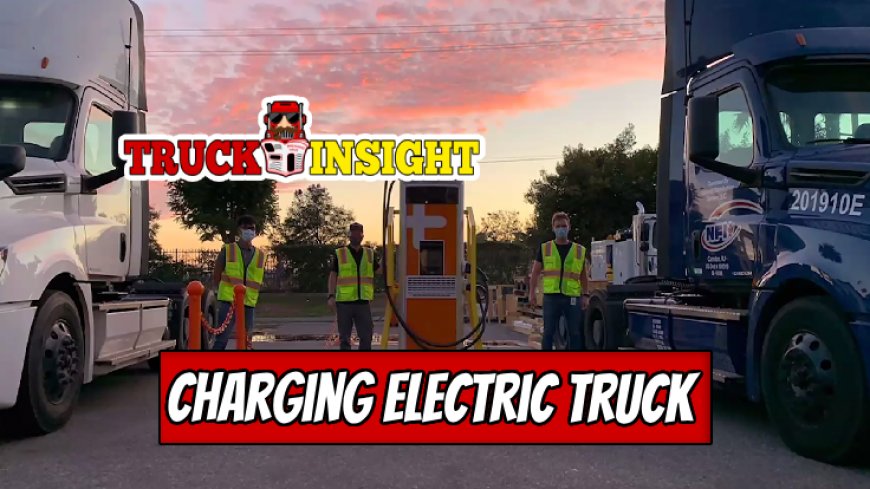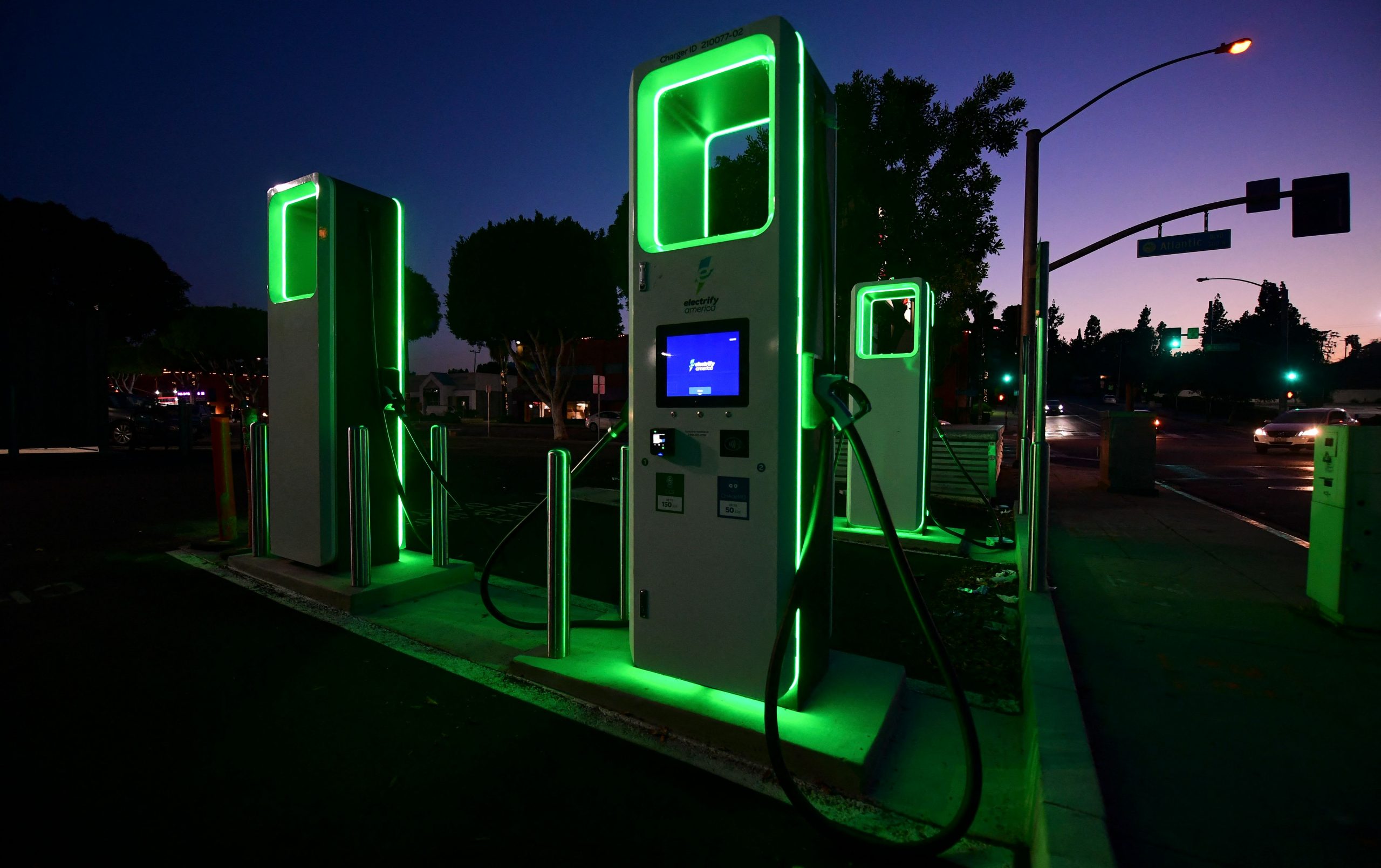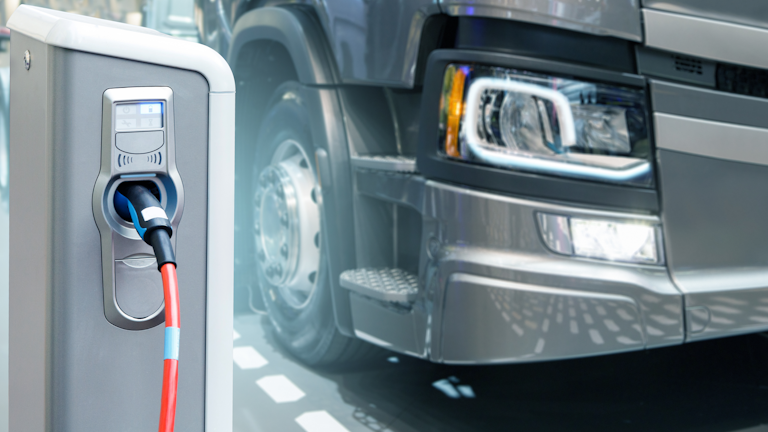Where and How to Charge Your Electric Truck
A comprehensive guide on charging infrastructure availability and how to efficiently charge your electric truck.

When it comes to charging an electric truck, there's much more at stake than just plugging it in and waiting. Location, charging type, and vehicle specifications can significantly impact how and where you can charge your electric truck. This comprehensive guide is here to make things simpler for you, providing key insights into the available charging infrastructure and efficient methods to juice up your vehicle.
Understanding the Basics of Charging Electric Trucks
The first step in figuring out how to charge your electric truck involves understanding the basics. This includes knowing the types of charging stations, the charging process, and how vehicle specifics can impact charging speed and efficiency.
Table of Contents
- Types of Charging Stations
- Finding a Charging Station
- Charging at Home
- Charging on the Go
- Cost of Charging Your Electric Truck
- Optimizing Charging Efficiency
- Future of Electric Truck Charging
Types of Charging Stations
Understanding the different types of charging stations is crucial in effectively charging your electric truck. Generally, there are three primary types of charging stations for electric vehicles (EVs).
Level 1 Charging Stations
A Level 1 charging station provides power using a standard 120-volt outlet. It's slow, providing only about 2-5 miles of range per hour charged, making it more suitable for passenger vehicles rather than long-haul electric trucks.
Level 2 Charging Stations
Level 2 charging stations, often found in homes, businesses, or public charging stations, provide power via a 240-volt outlet. Here, charging speeds are much more decent, providing 10-60 miles of range per hour charged.
DC Fast Charging Stations
DC Fast Charging (DCFC) stations, as their name implies, provide rapid charging speeds of up to 1000 miles of range per hour charged. These stations are usually found along major highways and are ideal for quickly charging electric trucks on long journeys. However, not all EVs are compatible with DCFC, so it's important to check your truck's specifications.
Finding a Charging Station

Locating a charging station doesn't have to be a hassle. A number of apps and websites can help you find the nearest one. Some popular options include:
- PlugShare: A user-friendly app with a comprehensive global EV charging map. With it, you can find charging stations by type and payment options.
- ChargePoint: Offers a real-time map of nearby charging stations. Additionally, the platform allows users to reserve charging spots and pay on the app itself.
- Electrify America: This network provides access to DC fast-charging stations across the United States. You can locate these stations and pay for charging through their mobile app.
Charging at Home
One of the biggest benefits of owning an electric truck is the convenience of being able to charge it at home. Yes, you heard right! You can say goodbye to those trips to the gas station and instead, recharge your vehicle while you sleep.
Despite being slower than Level 2 and DC fast-charging stations, Level 1 (standard wall outlets) charging can still handle the job if you have enough time. However, for more efficiency, you could install a Level 2 home charging station. A licensed electrician can ensure proper installation according to your truck’s power specifications and your home’s electrical capacity.
It's important to remember though, you'll need to check if your residential area has any rules or regulations concerning home charging station installations.
Charging on the Go
When it comes to long-haul journeys, DC Fast Charging (DCFC) stations are your best bet. They're strategically located along highways and popular routes, allowing you to top up your electric truck's battery in the shortest time possible while you grab a meal or take a rest stop. The key here is to plan your route wisely to make sure you don’t run low on battery power before reaching the next station. Fortunately, most navigation apps today, like Google Maps and Waze, have features that can help you locate charging points along your route.
Cost of Charging Your Electric Truck

No matter where you charge your electric truck, one question remains: What’s it going to cost me? The answer isn't straightforward, as it can depend on various factors such as:
- The type of charging used (Level 1, Level 2, DCFC)
- Your truck’s battery capacity
- Local electricity rates
- Charging network pricing policies
As a rough estimate, charging an electric truck at home with a Level 2 charger could cost you anywhere from $0.03 to $0.07 per mile. On the other hand, DCFC stations, with their higher speed and convenience, might be pricier. Hence, the most cost-effective way is to still charge at home whenever possible, reserving fast-charging for long trips.
Optimizing Charging Efficiency
To make the most of your electric truck charging, here are a few tips:
- Avoid complete discharging: Regularly letting the battery drain completely isn’t a good practice, as it diminishes the battery health over time.
- Opt for slower charging: When possible, choosing slower charging options can enhance battery lifespan.
- Temperature matters: Extreme temperatures can impact the efficiency of the charging process, with optimal conditions being between 50°F and 85°F.
- Follow a charging schedule: Most trucks have an option to set a charging schedule, which takes advantage of off-peak electricity rates to save on costs.
Future of Electric Truck Charging

The world of electric truck charging is not static. It evolves as rapidly as the electric vehicles themselves. With more investment in infrastructure and technological innovations, we can expect future enhancements in charging efficiency, cost, and convenience. Battery technologies like ultra-capacitors and solid-state batteries promise faster charging and greater energy density. The development of wireless charging and battery swapping stations also hint at an exciting future ahead.
Conclusion
Charging an electric truck may seem like a daunting undertaking if you're new to the game. But with an understanding of charging options, strategies for finding charging stations, cost considerations, and ways to optimize charging, it gets a lot more manageable. And remember, with each charge, you're part of the solution towards a cleaner and greener future for all.
What's Your Reaction?































































